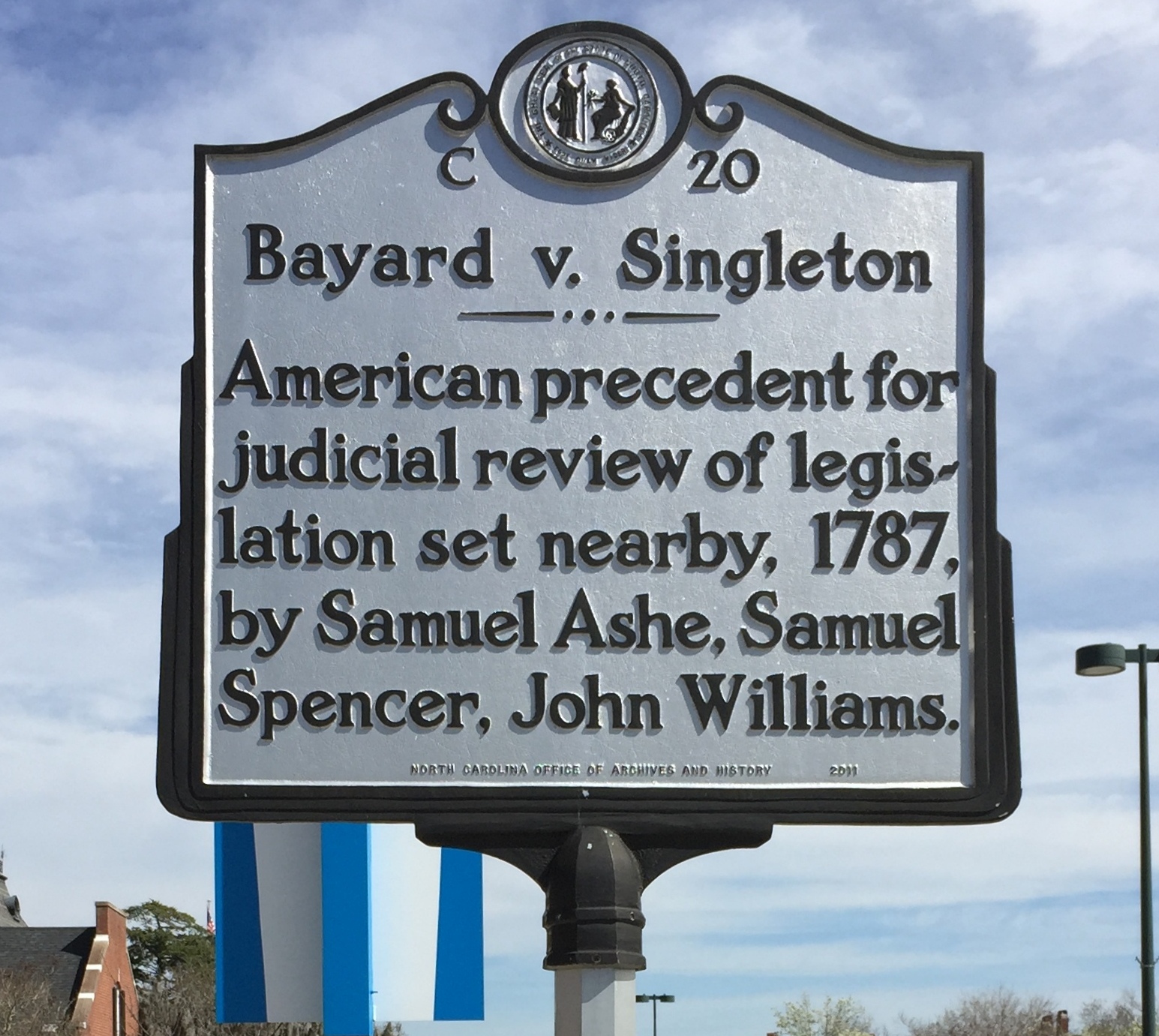 On November 26, 1787, Bayard v. Singleton, a landmark North Carolina court case that set a precedent for the exercise of judicial review, was decided in New Bern.
On November 26, 1787, Bayard v. Singleton, a landmark North Carolina court case that set a precedent for the exercise of judicial review, was decided in New Bern.
Earlier that year, Elizabeth Cornell Bayard filed suit to reclaim lands and property of her father, Samuel Cornell, which had been confiscated at the close of the American Revolution because of Cornell’s loyalist sympathies.
Bayard’s attorneys argued that the 1785 confiscation acts passed by the state violated a provision set forth in the state’s 1776 constitution that guaranteed anyone a trial by jury in a case involving the potential of loss of property. The case was heard by the forerunner to the North Carolina Supreme Court.
Although it appeared clear that the confiscation acts did indeed violate the state constitution, there was no precedent in the 1780s for a court to refuse to enforce a legislative act. The court ultimately took the case, and reluctantly agreed that they could not enforce an act that violated the state constitution, sending the case to trial.
While the court decided against Bayard – stating that her father was not a citizen and therefore could not have owned land in the first place – the Bayard v. Singleton case set the precedent for judicial review, a crucial concept within the American legal system.
For more about North Carolina’s history, arts, nature and culture, visit DNCR online. To receive these updates automatically each day, make sure you subscribe by email using the box on the right, and follow us on Facebook and Twitter.
